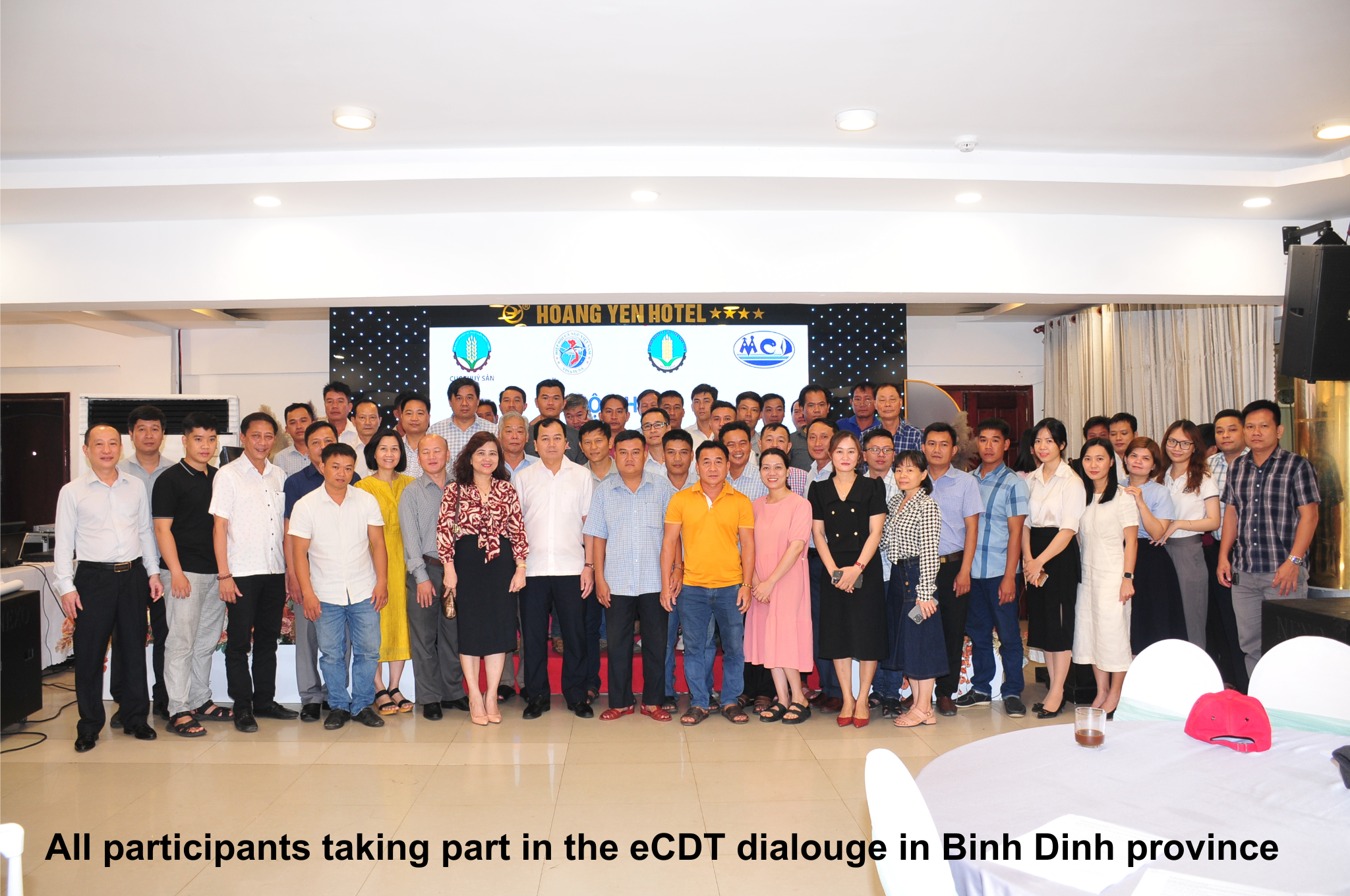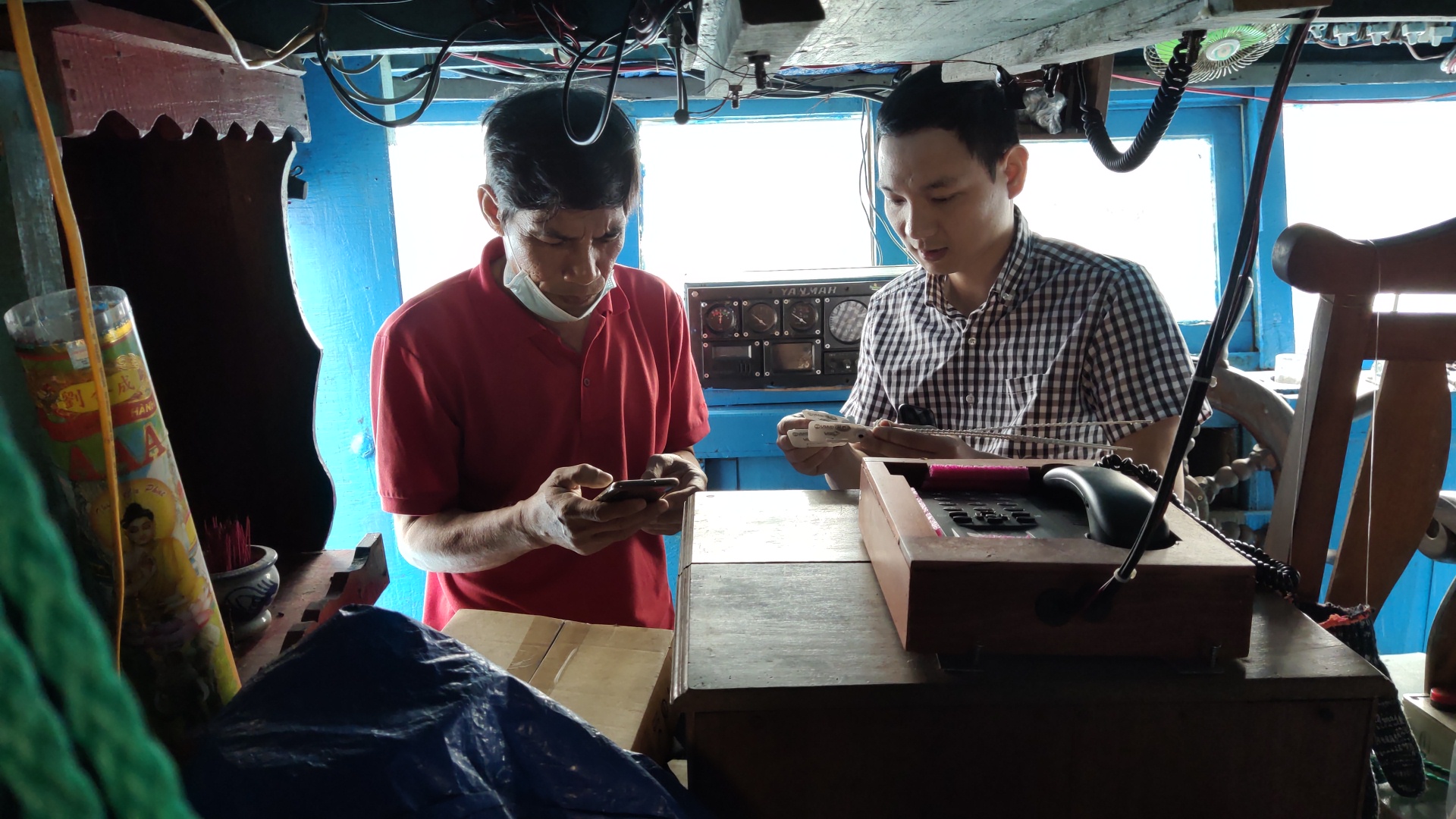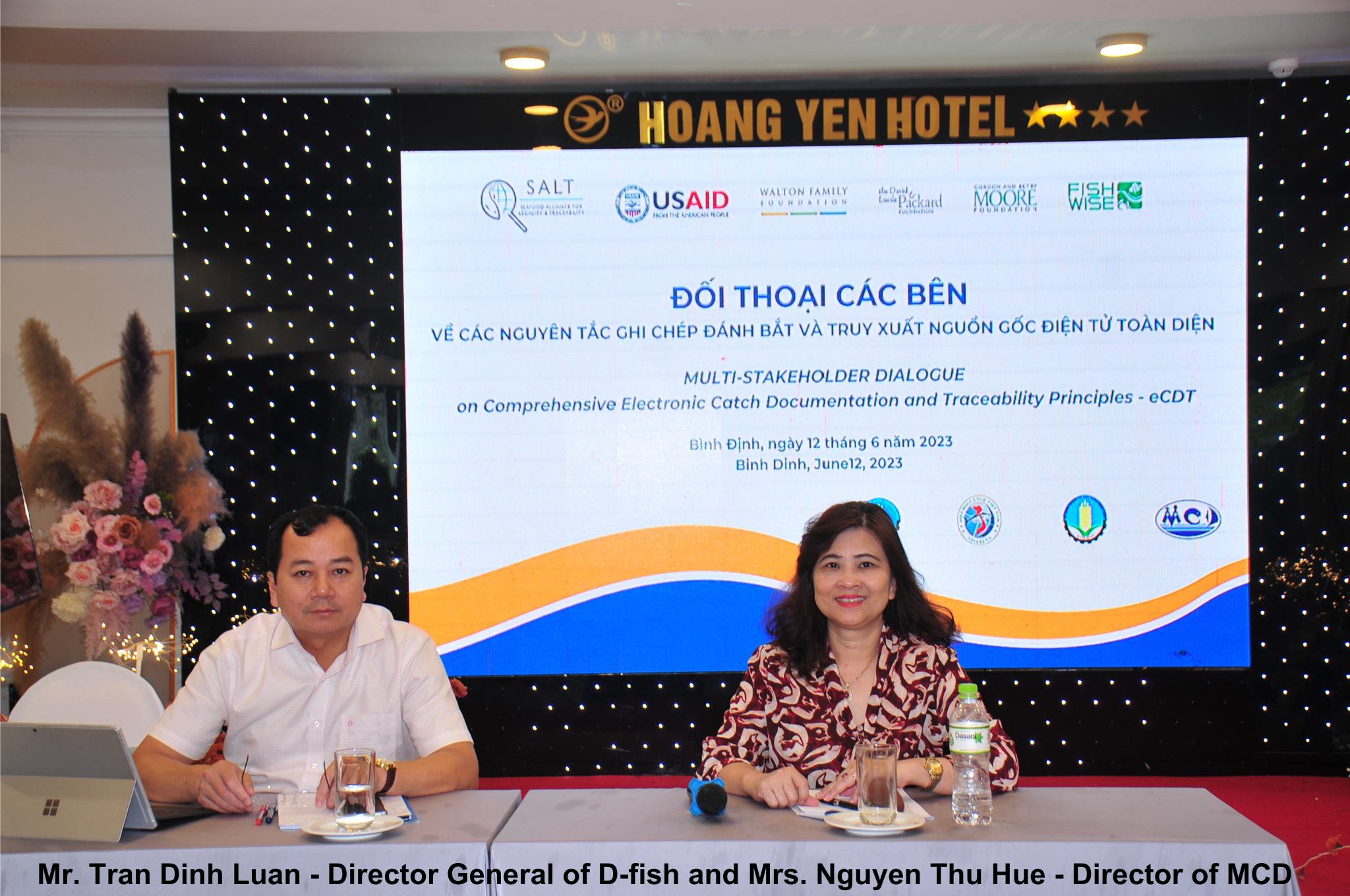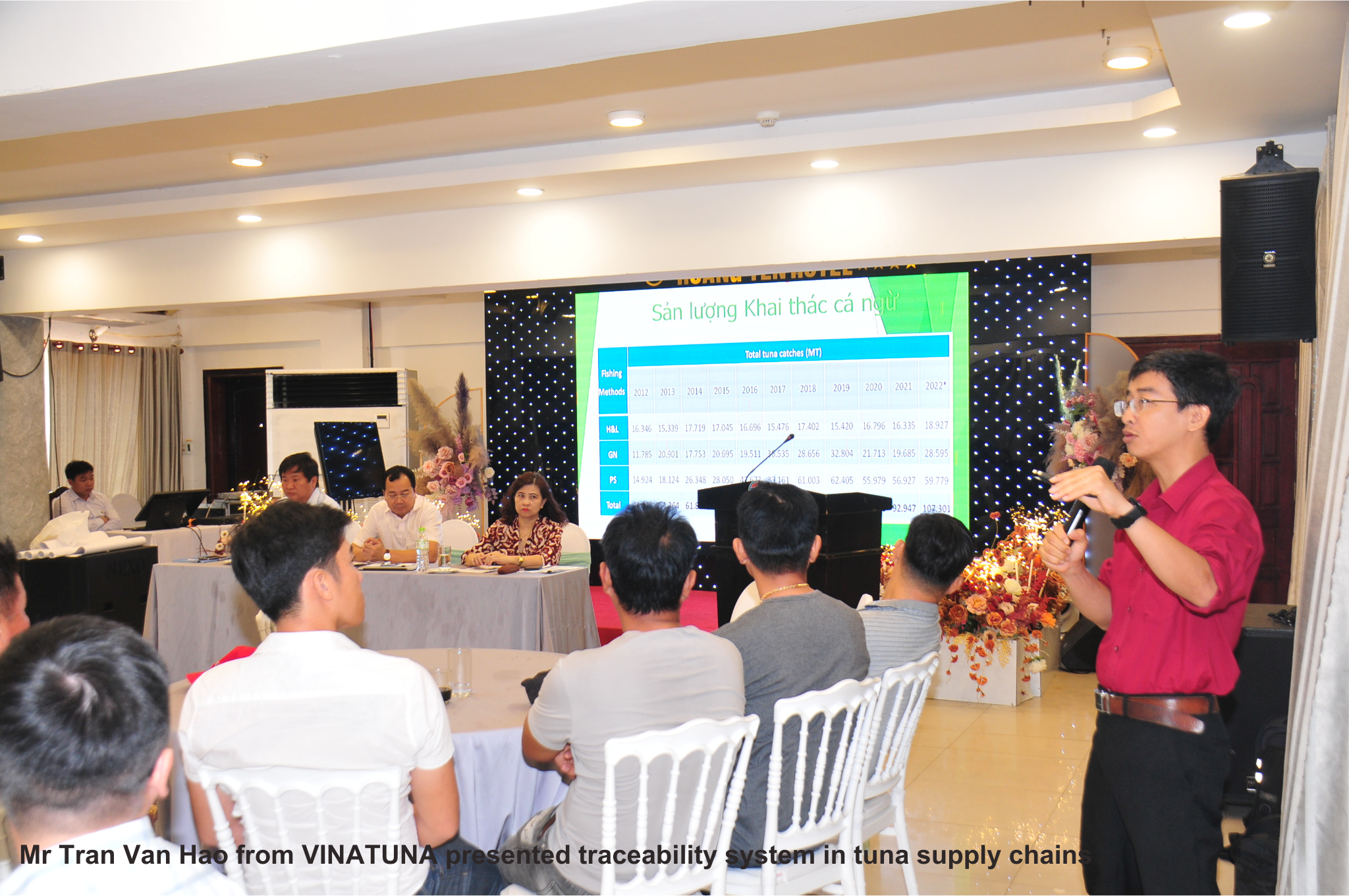
Advancing Seafood Traceability Through Collaboration - Updates From Vietnam 2023
Read this article in Vietnamese
Vietnam is one of the world’s largest seafood exporters, and most of its wild-capture seafood comes from small-scale fisheries. In 2020, Vietnam had over 550,000 people directly involved in fishing activities, 2 million people working in the supply chains, and 4 million people indirectly involved in the seafood industry. Vietnam is a fast-growing country, with a population of almost 100 million. The seafood industry plays a vital role in its economy and supports many livelihoods.
However, it was issued a yellow card by the European Commission in September of 2017. If the country does not take measures against illegal, unreported, and unregulated (IUU) fishing, with visible improvements, one of the largest importing markets, the EU, will ban seafood imports from Vietnam. Since then, many initiatives have been undertaken, but the yellow card has not yet been lifted.
SALT partnered with the Centre for Marinelife Conservation and Community Development (MCD) in 2020 to conduct learning events and knowledge capture in order to inform Vietnam’s national electronic catch documentation and traceability (eCDT) guidelines and roadmap. Electronic catch documentation is not the only solution against IUU fishing, but it is a powerful tool to mitigate the risks of including illegally caught fish in supply chains.
- Q&A with SALT’s Small Grant Recipient: Centre for Marinelife Conservation and Community Development (2020)
- SALT Grantee Update: Centre for Marinelife Conservation and Community Development (updates on eCDT pilot projects, 2021)
- SALT Grantee Final Update: Consultation Workshop on the National Roadmap and Guidelines for e-Logbook and eCDT in Vietnam (2022)
- Q&A with MCD & VinaTuna—Applying the Comprehensive Traceability Principles in Vietnam (2022)

SALT has worked with MCD and Vietnam Tuna Association (VinaTuna) this year to conduct a gap analysis to compare the current national eCDT guidelines to SALT’s Traceability Principles. The team shared the key findings at the Multi-Stakeholder Dialogue on Comprehensive Electronic Catch Documentation and Traceability Principles in Binh Dinh to discuss how the comprehensive approach—addressing ecological, social, and economic benefits through traceability—can be adapted to Vietnam’s traceability initiatives.
Traceability Program: All the elements (e.g., policies, technologies, trainings, processes) that are needed to effectively track products, reap comprehensive benefits, and make informed decisions.
Traceability System: A network of technologies (e.g., hardware and software) that (when implemented by the private sector) have the potential to improve operational efficiency and responsiveness of supply chains, identify sources of risk, and streamline reporting and compliance processes for participating companies.
Key Findings from the Gap Analysis
The analysis identified the following gaps and opportunities in Vietnam:
- The introduction of electronic traceability has been included in the Law on Fisheries (18/2017/QH14) and the Circular No. 21/2018 to create a legal mechanism for its use. However, there is not yet a national framework (program to support the implementation of the system) or action plan. Many eCDT pilots have been conducted, but a framework is required to scale up and support adoption.
- Current eCDT software does not include comprehensive data collection to maximize ecological, social, and economic benefits. The software focuses more on collecting fisheries information, such as species, volume, fishing gear, and location.
- Social topics, such as labor rights in the fishing workplace, safety, health, and gender, require interpersonal communication and dialogue between stakeholders in the supply chain. However, it is unclear who (within the government) will be responsible for carrying the conversation forward.
- The current national eCDT system has not collected baseline data to investigate the return on investment for stakeholders.
- The government is leading data management of the eCDT system and needs more collaboration with the private sector.
- Monitoring and evaluation tools are needed to assess the performance of the eCDT system. The eCDT pilot projects focused on collecting data rather than analyzing data, so the data in the eCDT system has yet to be fully exploited for different purposes and potential ecological, social, and economic benefits.
- Technology providers should also consider assessing human, financial, and infrastructure resources in order to build a lasting and expandable program.
- There has yet to be a coordination mechanism or agreement on cooperation between parties in implementing the eCDT system. Establishing clear goals and identifying the roles of each participant is essential for an inclusive and collaborative environment among stakeholders.
Perspectives of different stakeholders
MCD and VinaTuna, the largest tuna producer in Vietnam, with support from the Department of Fisheries, hosted the multi-stakeholder meeting in Binh Dinh. Participants included representatives from the Department of Fisheries, the Department of Agriculture and Rural Development, the Sub-Department of Fisheries of Binh Dinh Province, the fishing port management board, seafood processors and exporters, vessel owners and fishers in Binh Dinh Province, the fisheries union, and technology providers.
We were thrilled to see such strong representation from the government sector, as Vietnam went through a major restructuring in early 2023. The former Directorate of Fisheries (DFish) is now the Department of Fisheries, with each agency under the Department of Fisheries having a more narrowed scope and new leaders. This meeting was one of the first convenings focusing on seafood traceability after the restructuring.
After learning about the Traceability Principles and the key findings of the gap analysis, each party shared feedback and expressed how the comprehensive approach could benefit them.
- The eCDT system will help improve the process of recording by moving away from paper-based recording, saving time and costs, and bringing efficiency to product and supply chain management. There should be management guidance and consistency, from central to local levels, combining electronic declaration and physical inspection of ports in and ports out to ensure accuracy and completeness. – Representative of the fishing port management board
- In tuna fisheries, fishers keep a paper record, which does not guarantee the accuracy and continuity of the retrieval system. Implementing an electronic system will bring efficiency, accuracy, and transparency from the point of catch onward. Being able to provide the data will bring confidence in trade. – Representatives from the business sector
- The catch documentation system is relatively convenient to use and saves time. It would be helpful to have more specific guidance and technical assistance to meet each fishery’s characteristics. – Representatives from the Binh Dinh fishery community

Regulation to Support the Adaption of eCDT
The eCDT software system is currently managed and used by the Department of Fisheries. The national eCDT software was developed to comply with Circular No. 21/2018/TT-BNNPTNT, which mentions transitioning from paper-based reporting to electronic systems.
This software stores information on requirements for entering/leaving the port, and records fishing logs, transshipment logs, confirmation of the volume of extracted materials, purchase receipts of fishery products, and validation and certification of fishery materials. This software has seven different user groups, including the Department of Fisheries, the Sub-Department of Fisheries, the fishing port management board, export processing companies, traders, and fishers. Each user group has its own interface to record or view related information.
This software allows the government to issue certifications to export seafood products. However, the current version cannot be integrated with other software, so that industry users— such as processing and trading companies—have separate systems running parallel to the national eCDT software in order to comply with market requirements. Our meeting provided an opportunity for the government to hear from different stakeholders about how they envision using the eCDT platform if it becomes more open and integrated.
The system is already there, though there is a question about whether the system meets the demand of potential users. MCD summarized the key challenges as follows:
- Cooperation and synchronous coordination among private and public actors are essential to make the national system interoperable with other privately owned systems.
- National guidelines and an implementation framework (program) are required.
- Some baseline standardization is required, but customization and flexibility are needed to meet the particular needs of multi-species, small-scale fisheries.
- Scaling up the eCDT depends on each fishery’s species, market demand, and local capacity. Benefit sharing and cost calculation are needed.

Recommendations from the Meeting
When initiating a traceability initiative, it is easy to jump on the technology side of the conversation, since it gives a structure. However, it is equally important to address the programmatic side of traceability—who should be involved, the common goals, data-sharing privacy issues, return on investment, and so forth. SALT’s Traceability Principles can help address this side of the goal. Luckily, Vietnam already has a robust national system to support data collection. Adding another layer to the current initiative, to discuss how to use the collected data to achieve stakeholders’ ecological, social, and economic goals, will make Vietnam’s national traceability program successful.
The final recommendation to come out of this convening was for the Department of Fisheries to:
- Complete the national implementation guideline documents.
- Review the software and data management system to allow for integration.
- Build a task force to strengthen the coordination and collaboration of public and private sectors.
Though it is not officially formalized, MCD, VinaTuna, and the fisheries union agreed to contribute their time and resources to support the Department of Fisheries on this initiative. We are thrilled to hear about the fruitful conversation among various stakeholders. SALT and FishWise will continue seeking funding opportunities to support this momentum in advancing Vietnam’s electronic traceability initiative.
Special Thanks to:

Written By:

